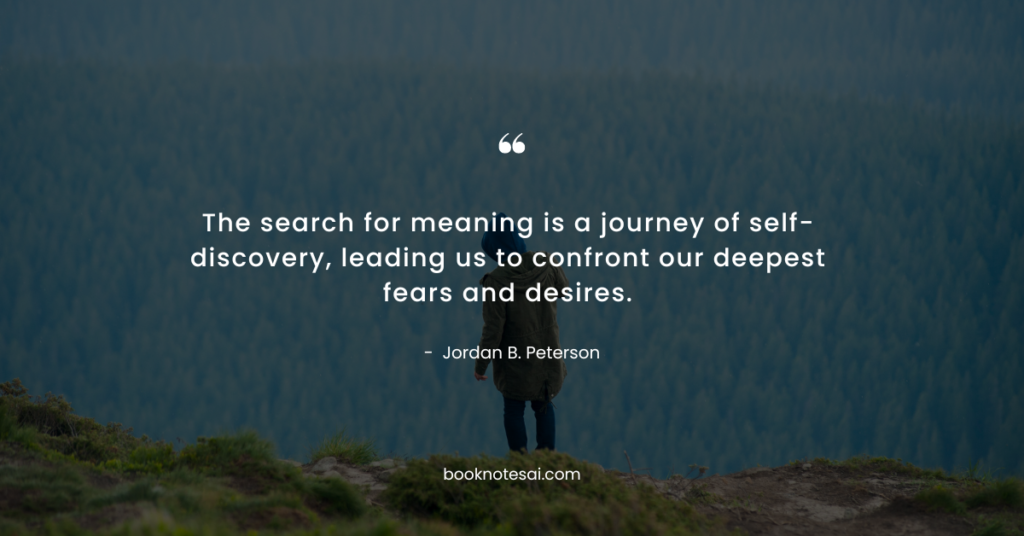Listen To This Post
Maps of Meaning Summary: The Architecture of Belief. Navigating the Depths of Meaning.

This is a book summary for Maps of Meaning: The Architecture of Belief by Jordan B. Peterson. The essential information is structured to be straightforward, useful, and valuable, all while helping you save plenty of time.
Introduction: Why this book?
- Delving into Maps of Meaning: The Architecture of Belief by Jordan B. Peterson offers profound insights into the nature of belief and meaning, guiding you through the intricate labyrinths of the human psyche.
- By investing time in understanding the concepts within this book, you gain a profound understanding of the underlying structures that shape our beliefs and behaviors, empowering you to navigate life with clarity and purpose.
Maps of Meaning Summary:
- Jordan B. Peterson explores the psychological significance of cultural myths and narratives, elucidating how they shape human behavior and belief systems.
- The book delves into the archetypal patterns that underlie religious and cultural symbolism, offering a profound exploration of the human psyche.
- Peterson argues that understanding these maps of meaning is crucial for individuals seeking to confront the chaos of existence and find purpose in their lives.
- Through a multidisciplinary approach, including psychology, mythology, and philosophy, Peterson constructs a framework for understanding the complexities of human existence.
- Ultimately, Maps of Meaning offers readers a roadmap to navigate the complexities of belief and meaning in a chaotic world.
💡 5 Big Ideas
- The Power of Mythological Narratives:
Jordan B. Peterson emphasizes the profound influence of mythological narratives on human behavior, suggesting that they offer a roadmap for navigating the complexities of existence.
By studying these narratives, we can uncover deeper truths about the human condition and find meaning in our lives. - Confronting Chaos:
Peterson argues that confronting chaos is essential for personal growth and transformation.
By embracing the unknown and confronting the chaos within ourselves, we can transcend our limitations and discover new possibilities. - The Importance of Symbolism:
Symbolism plays a crucial role in shaping human perception and behavior.
Peterson explores the psychological significance of symbols, suggesting that they provide a framework for understanding the complexities of the world around us. - The Hero’s Journey:
Drawing on the archetype of the hero’s journey, Peterson explores the transformative power of facing adversity and overcoming obstacles.
By embarking on our own hero’s journey, we can discover hidden strengths and unlock our full potential. - Finding Meaning in Life:
Ultimately, Maps of Meaning encourages readers to search for meaning in their lives.
By confronting the existential challenges of existence and embracing responsibility, we can find purpose and fulfillment in our journey through life.
In essence, Maps of Meaning teaches us that by embracing the power of myth, confronting chaos, understanding symbolism, embarking on the hero’s journey, and seeking meaning in our lives, we can navigate the complexities of existence with courage and clarity.
Powerful Quotes
- “Chaos and order are two of the most fundamental elements of the world, and grappling with them is essential for personal growth.”
This quote emphasizes the importance of confronting chaos and finding order in our lives. - “Meaning is found not in happiness but in the pursuit of something deeply meaningful.”
This quote underscores the significance of pursuing meaningful goals and striving for personal fulfillment. - “The hero’s journey is not about escaping the chaos but about confronting it and transforming it.”
This quote highlights the transformative power of confronting adversity and embracing challenges. - “Symbols are the language of the unconscious, offering profound insights into the mysteries of the human psyche.”
This quote explores the role of symbolism in shaping human perception and behavior. - “Belief systems provide a framework for understanding the complexities of the world and our place within it.”
This quote elucidates the significance of belief systems in shaping our perceptions and guiding our actions. - “To find meaning in life, we must confront the existential challenges of existence and embrace responsibility.”
This quote encourages readers to confront the fundamental questions of existence and take ownership of their lives. - “The journey to meaning is fraught with obstacles and challenges, but it is through these struggles that we find our true purpose.”
This quote underscores the transformative power of confronting adversity and finding meaning in our lives. - “Mythological narratives offer a roadmap for navigating the complexities of existence, guiding us through the darkness towards the light.”
This quote explores the power of mythological narratives in shaping human perception and behavior. - “The search for meaning is a journey of self-discovery, leading us to confront our deepest fears and desires.”
This quote encourages readers to embark on a journey of self-discovery and explore the depths of their own psyche. - “In the face of chaos, we discover our true strength and resilience, rising to meet the challenges of existence.”
This quote celebrates the transformative power of confronting chaos and finding meaning in our lives.
One Reason To Read This Book:
Maps of Meaning: The Architecture of Belief offers profound insights into the human psyche, guiding readers on a journey of self-discovery and personal transformation.
Who should I recommend Maps of Meaning Summary to?
If you’re intrigued by the complexities of human behavior, fascinated by mythology and psychology, or seeking deeper insights into the nature of belief and meaning, this summary is for you.
Whether you’re a student of psychology, a curious thinker, or someone navigating the complexities of existence, Maps of Meaning offers invaluable wisdom and guidance.
Recommendations:
- Explore Joseph Campbell’s “The Hero with a Thousand Faces” for further insights into the hero’s journey.
- Dive into Carl Jung’s “Man and His Symbols” to deepen your understanding of symbolism and the unconscious mind.
- Listen to Jordan Peterson’s lectures and interviews for additional perspectives on psychology, mythology, and philosophy.
The summary provided here offers a glimpse into the discussed title Maps of Meaning: The Architecture of Belief, providing valuable insights. For a richer understanding, we recommend delving into the full book.


